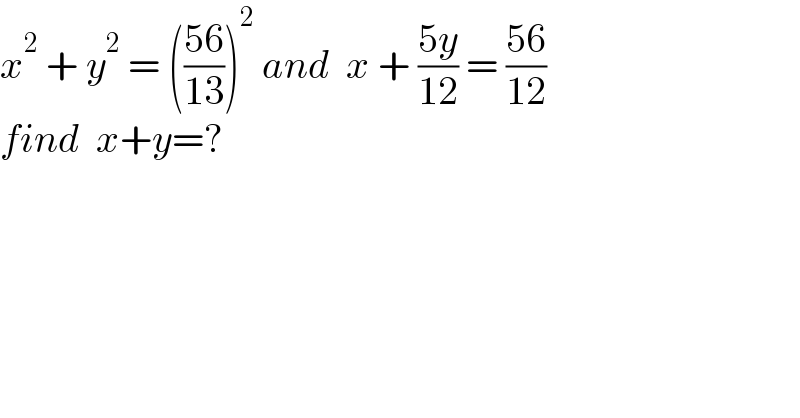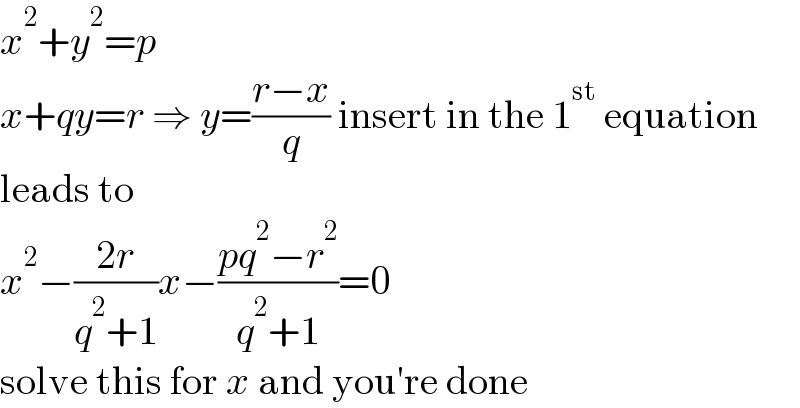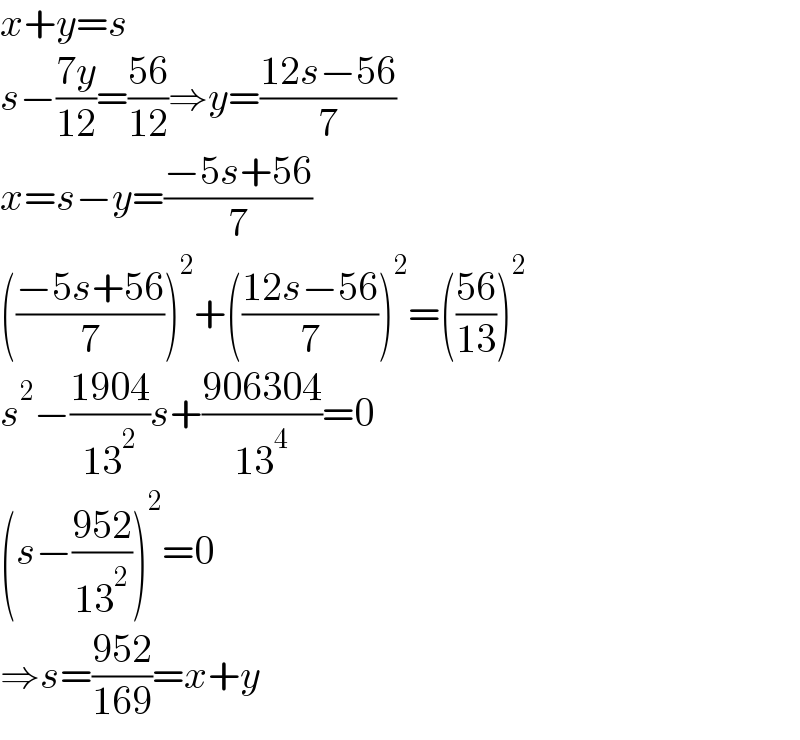
Question and Answers Forum
Question Number 143832 by mathdanisur last updated on 18/Jun/21

Answered by MJS_new last updated on 18/Jun/21

Commented by mathdanisur last updated on 19/Jun/21

Answered by mitica last updated on 18/Jun/21

Commented by mathdanisur last updated on 19/Jun/21

Answered by mr W last updated on 19/Jun/21

Commented by mathdanisur last updated on 19/Jun/21

